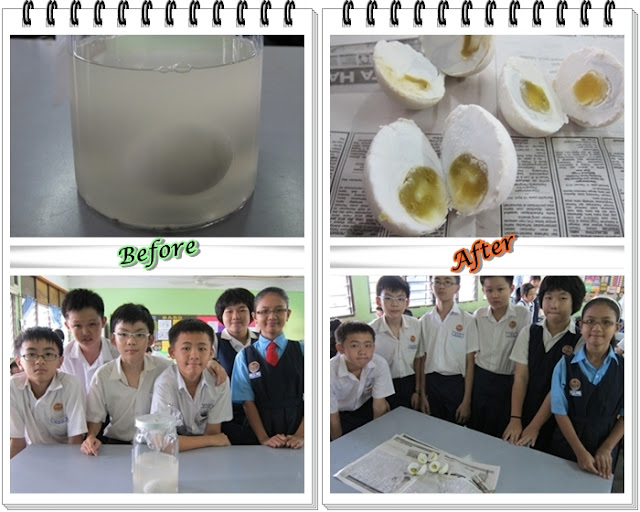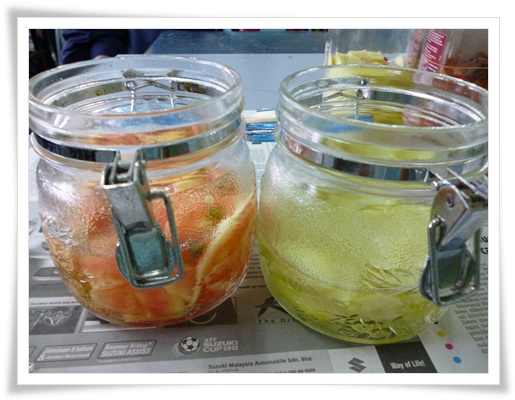Ingredients: Duck eggs, coarse salt, water
Procedures:
1. Wash
and clean duck eggs under running water by rubbing with a piece of cloth and immediately
rub it dry (Do not soak the eggs in water).
2. Stir
salt with warm water till salt dissolved as much as possible, set aside to
cool.
3. Place
duck eggs in a clean glass jar, add in salt water. Close the lid and mark the
date.
4. Store
in room temperature for 14 days.
Group 1
Group 2
Group 3
Group 4
Group 5
Group 6
Yeah, we were having our homemade salted eggs, yummy yummy~~~~~





































